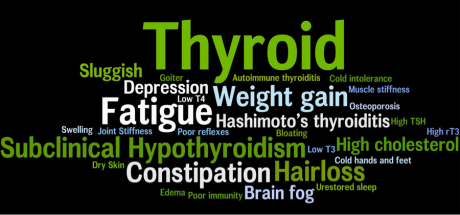The thyroid is responsible for secreting hormones and keeping your energy levels right where they should be; basically, it acts as the “leader” of the endocrine system. So, it goes without saying, if you keep your thyroid healthy, your body will thank you. But, remember the thyroid is vulnerable to environmental toxins like BPA and pesticides, among other nasties.
4 Tips for Supporting Your Thyroid
While there are some endocrine disruptors in our environment that you absolutely can’t avoid 100% of the time, there are a few measures that you can take to stack the deck in your favor. Here are just a few of the simple steps you can take to protect your thyroid health.
1. Drink Fluoride-Free Water
Fluoride was once prescribed as a remedy for an overactive thyroid. [1] It only takes a low dose (2 to 5 mg per day over a few months) to lower function, and that’s about as much fluoride already in the water supply we drink. Drinking fluoride-free water could lower your chances of developing an underactive thyroid by as much as 30 percent. [2]
2. Avoid Endocrine Disrupters
Phthalates are some pretty nasty toxins used to make plastic flexible, but they’re also used in some personal care products. As endocrine disruptors, phthalates can sabotage thyroid function. But pollution from phthalates can also be an issue, according to a recent study from China. Researchers in the study found two common phthalates in drinking water. [3] While avoiding endocrine disruptors is key, studies suggest adding turmeric to your diet could help the thyroid by soothing the irritation caused by them. [4] A liquid extract could provide an especially strong punch.
3. Go Gluten Free
Gluten contains a protein called gliadin. Since this protein isn’t found in our bodies, the immune system can attack it. Now, when someone has a gluten intolerance or worse thyroid issues can develop because, to the body, gliadin looks a lot like a necessary enzyme called transglutaminase. [5] Used to form chemical bonds, this enzyme is already found in high concentrations in the thyroid, so the immune system’s antibodies can actually attack the gland. [6] Eating a gluten-free diet could be a huge step in helping thyroid health.
4. Get Enough Iodine
Iodine helps the thyroid produce its two main hormones that are critical to the body’s metabolic functions. Since the body can’t produce iodine on its own, making sure you get enough is crucial. Because your only options are trace amounts in foods and a supplement, I recommend Detoxadine, an excellent nascent iodine option that will help support a healthy thyroid.
Lifestyle is Key
Good thyroid health isn’t the result of just one thing; it’s a combination of good lifestyle choices and nutrition, and the 4 tips above should help you on the way to a healthy thyroid. Exercise and sleep are two excellent free methods that will help regulate thyroid health. Be sure to consume a healthy diet, mostly raw, to ensure intake of all vitamins and minerals essential for thyroid function.
What do you do to keep your thyroid healthy? Tell us about it in the comments.
References:
- Galletti P, et. al. Effect of fluorine on thyroidal iodine metabolism in hyperthyroidism. Journal of Clinical Endocrinology. 18 (10).
- Peckham, S. et al. Are fluoride levels in drinking water associated with hypothyroidism prevalence in England? A large observational study of GP practice data and fluoride levels in drinking water. Journal of Epidemiology & Community Health.
- Li, N. et al. Dibutyl Phthalate Contributes to the Thyroid Receptor Antagonistic Activity in Drinking Water Processes. Environmental Science & Technology. 44 (17).
- Jurenka, J. S. Anti-inflammatory properties of curcumin, a major constituent of Curcuma longa: a review of preclinical and clinical research. Alternative Medicine Review. 14 (2).
- Griffin M. et al. Transglutaminases: nature’s biological glues. The Biochemical Journal. 368 (Pt 2).
- Naiyer, A.J. et al. Tissue transglutaminase antibodies in individuals with celiac disease bind to thyroid follicles and extracellular matrix and may contribute to thyroid dysfunction. Thyroid. 18 (11).
Dr. Edward F. Group III, DC, NP, DACBN, DCBCN, DABFM has studied natural healing methods for over 20 years and now teaches individuals and practitioners all around the world. He no longer sees patients but solely concentrates on spreading the word of health and wellness to the global community. Under his leadership, Global Healing Center, Inc. has earned recognition as one of the largest alternative, natural and organic health resources on the Internet.





